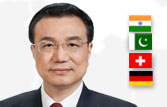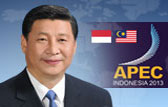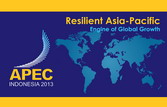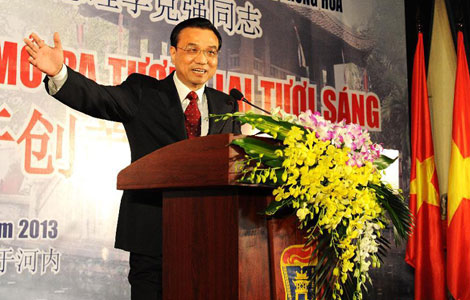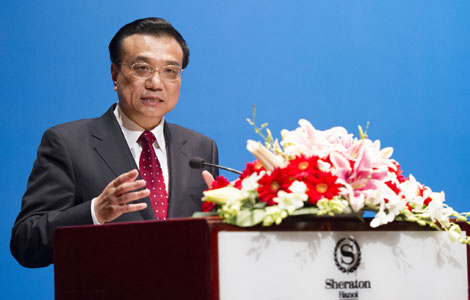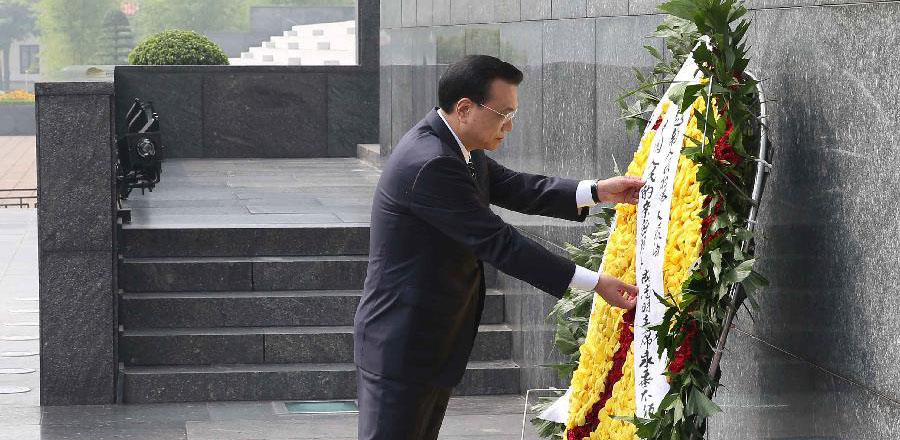China increasingly visible in ASEAN
Updated: 2013-10-10 01:24When a Bruneian businessman told me earlier this year that China UnionPay is the only bank card that can challenge the dominance of Visa and MasterCard, headquartered in the United States, I agreed, but assumed the time that would happen to be far in the future.
But on my way to Brunei on Wednesday for the upcoming ASEAN and East Asia summits, all three newspapers I randomly grabbed on the aircraft — two from Malaysia and one from Brunei, told similar stories that bolstered my confidence in the businessman's judgment.
They were that US President Barack Obama's cancellation of his Southeast Asia tour underscored a "diminished superpower", while consecutive trips by Chinese leaders to the same region highlighted a committed neighbor despite patchy global recovery and volatility in financial markets.
The US federal shutdown this month stopped Obama from visiting Malaysia and the Philippines, as well as attending the Asia-Pacific Economic Cooperation Summit in Indonesia and the subsequent East Asia Summit in Brunei, this year's ASEAN chair.
There are jokes on China's micro-blogging platforms saying, "Why did Obama cancel his trip? Maybe because he can't pay for his fuel and hotel."
But it is not a funny joke. By Tuesday, Asian stocks had fallen for a third day as US lawmakers remained at odds over lifting the debt ceiling to avoid a default. There are concerns about a threat bigger even than the government shutdown to dampen global recovery.
This month, President Xi Jinping also made his maiden visit to Southeast Asia and first appearance at an APEC summit after taking office in March, pledging to shore up growth with substantial action.
Xi became the first foreigner to address the Indonesian Parliament, offering billions of dollars in trade to the country that was Obama's childhood home. He also mapped out an economic cooperation blueprint with Malaysia, where Obama failed to visit.
"I don't care about whether Obama will come or not this time, but I would be disappointed if no Chinese leader came, because so many Chinese have visited Brunei this year," a local worker at Brunei's airport said, referring to Premier Li Keqiang's Wednesday arrival in Bandar Seri Begawan for the ASEAN and East Asia summits.
It has also been my third trip to Brunei to report China's participation in a series of ASEAN activities this year. Some of the hotel staff members, drivers and shop owners in the tiny country have told me that their knowledge about China has soared from almost zero to quite a lot.
Brunei is not the only Southeast Asian country that harbors a growing interest in strengthening cooperation with China.
"(APEC) Show must go on without Obama," was the headline in Indonesia's Jakarta Post.
"The opportunity to foster strong relations with China must be seized. ... That China's global stature can only grow over time cannot be denied," Malaysia's New Straits Times newspaper said in a recent editorial.
But all these are not to say the US will lose its standing in the region. Its mighty role has been evident from the media coverage of Obama's absence. Neither the impact of a leader's absence nor China's influence in the Asia-Pacific region should be exaggerated.
However, just as a famous Chinese saying, "A near neighbor is better than a distant cousin", it should be much easier for China to make more great leaps forward in developing ties with Southeast Asia than for other countries outside the region.
Maybe next time I come back to Brunei, I'll see more of what I previously thought of as miracles being realized.



